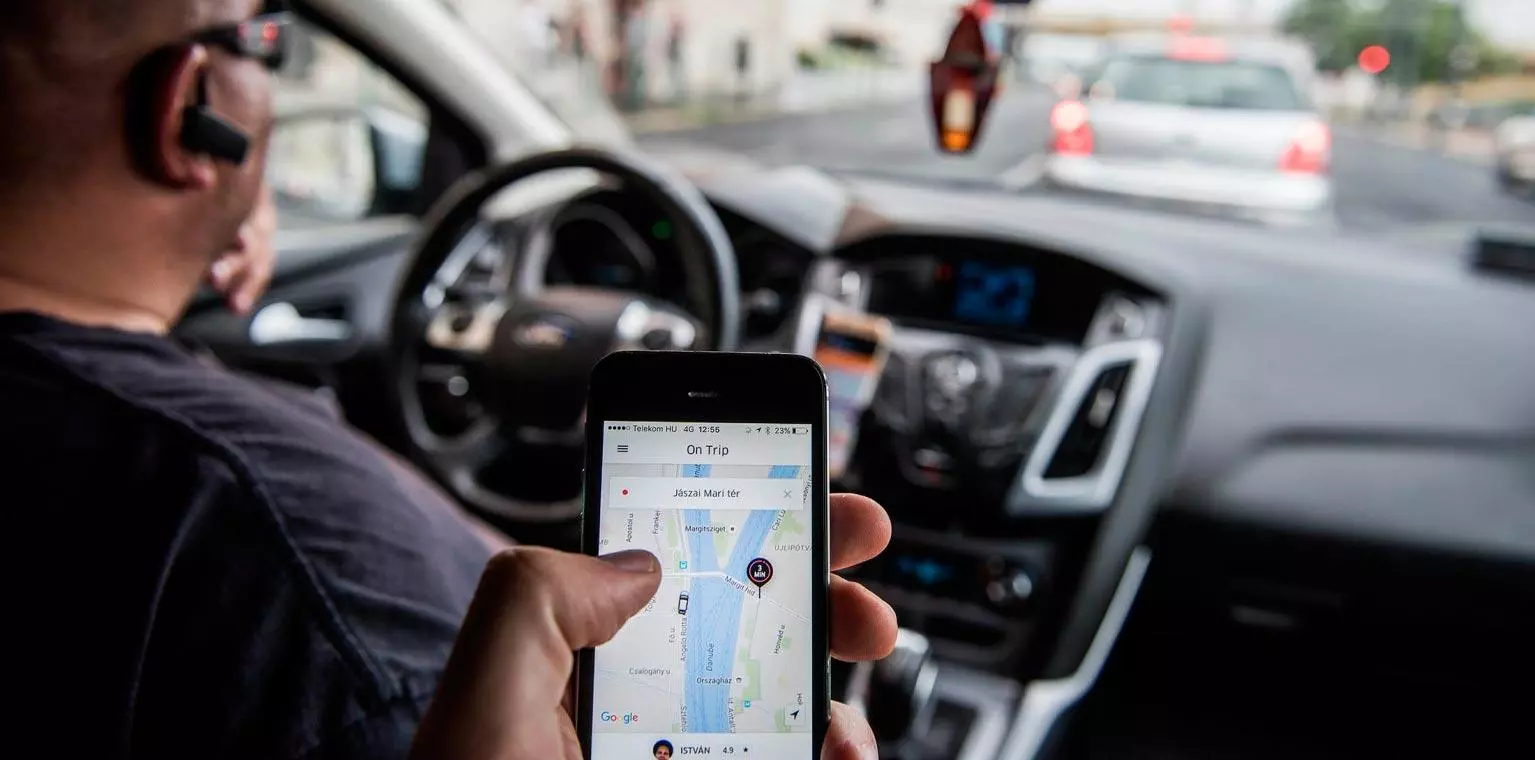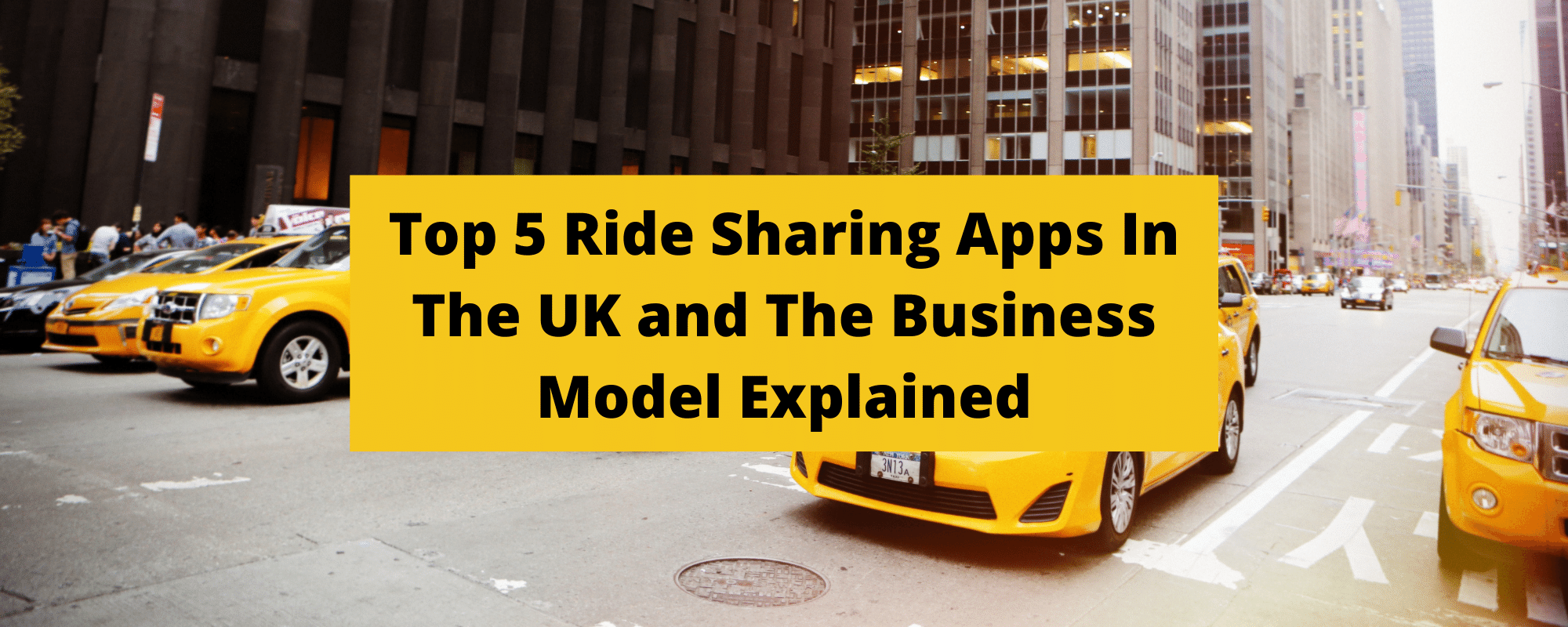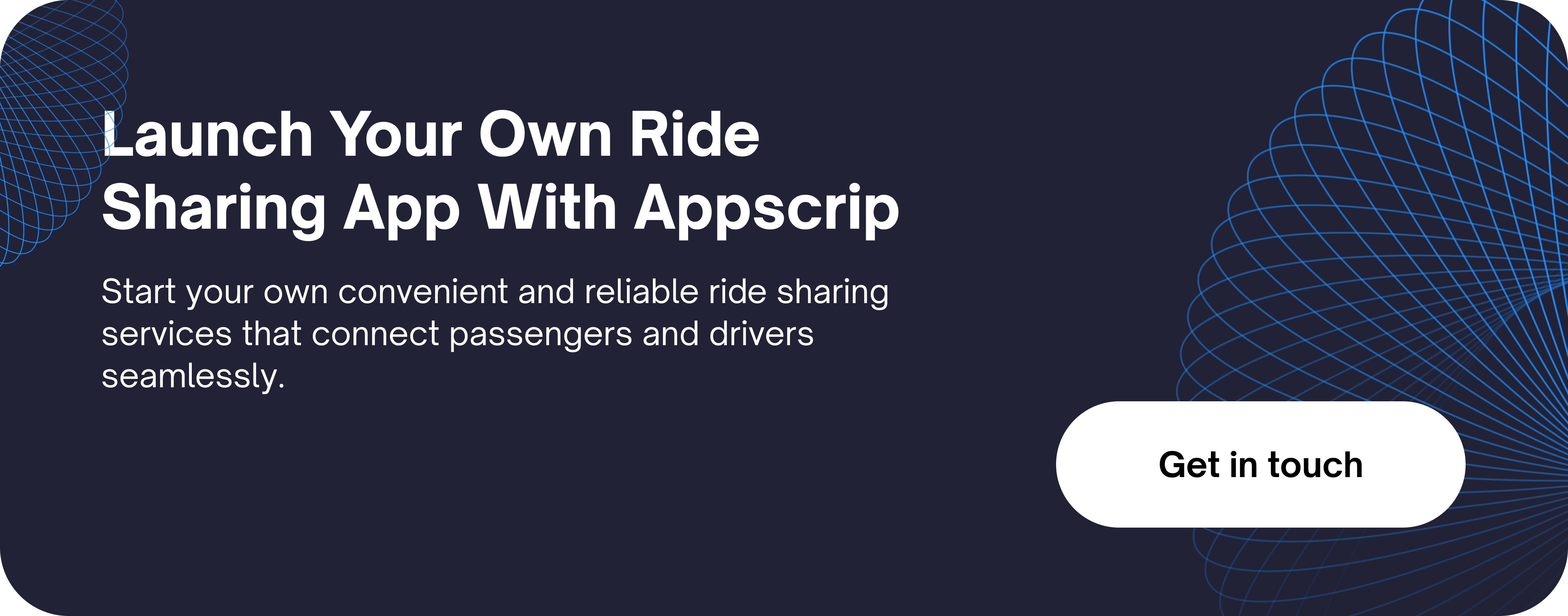Ride sharing apps in the UK are becoming increasingly popular, as people are less concerned with owning a car and more interested in finding ways to get around. They were only thinking about buying a car because travelling in it would be so much simpler and more comfortable for them.
Over the course of time, a variety of problems attributed to both the environment and people’s health have surfaced as a direct result of the widespread use of automobiles.
The transportation sector was therefore geared up for the implementation of solutions such as Uber, Lyft, and BlaBla cars as the natural next step. All of these apps made it easier to arrange a taxi at any time of day and from any location, and they did so across the board.

The future of ride-sharing apps looks promising as they continue to revolutionize the transportation industry. With the growing popularity of on-demand services, ride-sharing apps have become a convenient and cost-effective way for people to get around.
Introduction: Top Ride Sharing Apps in the UK
As the digital age continues to advance, the concept of developing a ride-hailing app in the vein of Uber is becoming an increasingly appealing option. To what extent, though, does the business model of ride-sharing apps still have a place in today’s competitive environment for startups?
The primary factor behind the meteoric rise in popularity of ride-sharing services all over the world is the ever-increasing demand for alternative modes of transportation that are not only economical but also effective.
Due to the rising costs of owning a car, as well as government regulations and the growing urgency to reduce traffic and CO2 emissions for environmental reasons, ride sharing has become increasingly popular in the last few years. According to the statistics, the global market for ride-sharing services is anticipated to reach 185 million USD by the year 2026.
Best Ride Sharing Apps in the UK
According to a report by Statista, the global revenue of ride-sharing services is expected to reach $117 billion by 2023, which indicates that the market is set to grow in the coming years.
Taxiapp UK
Taxiapp is founded and run by cabbies themselves. They are a not-for-profit organisation. The main purpose of Taxiapp is to prevent the legendary black cabs from going out of business.
Taxiapp’s one advantage over other apps that provide a similar service is the drivers’ “Knowledge”. The Knowledge has been part of the requirements for taxi drivers since 1865. In simplest terms, it is the knowledge of London’s complex road network.
Taxiapp is only funded through membership. It requires no extra fees or surprise charges for both the passengers and the drivers. All of Taxiapp’s cabs are wheelchair accessible and they welcome assistance dogs, too. Also, they are getting greener as more and more black cabs are now electric.
Ola
In the absence of Uber, many Londoners have turned to the India-based Ola app for ride-hailing services. The company is a strong competitor to Uber in Australia, New Zealand, the United Kingdom, and India, serving more than a billion passengers in more than 250 locations.
Many other services are offered by Ola, including those that are not related to ride-sharing. In addition to carpooling, car sharing, and auto rentals, they’re now offering services for electric scooters, corporate transport, and more. In terms of growth, it’s similar to Uber and Bolt, but it doesn’t do food delivery.
Both Ola and Bolt are striving to run their operations in a more environmentally friendly manner. The usage of electric vehicles is a primary goal for both of these businesses, as is the reduction of their overall carbon footprint.
Via
The New York-based Via, formerly known as ViaVan, claims to “change public transit from a centralised environment of rigid routes to a fully distributed, on-demand network. People from more than 20 countries and 400 cities use Via to commute to work or school.
The business model of Via differs from those of the previously named firms. To put it another way, Via works with local authorities to improve public transportation and urban mobility.
Passengers can use the app to reserve a single car for a group of people who are travelling in the same direction. In the event of a pandemic, this may not be the best solution, but it is better for the environment.
Wheely
Wheely is one among the ride sharing apps in the UK which is only available in seven Russian cities and three European countries, but it will serve a niche market with high-end vehicles and professional chauffeurs. It is therefore reasonable to conclude that the company’s founders, Anton Chirkunov and Pavel Bocharov, do not have an interest in experiencing rapid growth.
Wheely can provide you with expert drivers who are equipped in luxurious Mercedes cars and vans. These vehicles are at your disposal whenever you choose an experience that is more elegant.
In addition, the company with its headquarters in London provides business partnerships to clients who require a fleet or airport shuttles for company officials.
Gett
Gett, a London-based transportation management company, launched its services in 2010. Ride-hailing, taxi, and limousine service providers can all use the same app currently. In contrast to other apps of its kind, this one does not allow you to hail private cars, but it does allow you to summon a black taxi in London with just a few taps.
The company claims that all of its services in the United Kingdom are carbon-neutral. Its goal is to help reduce greenhouse gas emissions.
Gett completed the acquisition of Radio Taxis in 2016, along with the company’s other two brands that are owned by its parent company. One of them is Xeta, which is also a black taxi service, and the other is One Transport, which is a logistics platform that provides car rental services to enterprises.
Monetisation and Business Model of Ride Sharing apps in the UK
It has become more and more common for people to use ride sharing apps in the UK instead of calling a cab. These digital platforms are increasing efficiency and enhancing transportation facilities while doing so in a way that is both more cost-effective and more environmentally friendly.
Ride sharing apps in the UK have also helped popularise the aggregator ride-sharing business model. When it comes to ride-sharing services, the corporation relies on partnerships rather than building or developing its own product. Ride-sharing services based on peer-to-peer technology also follow typical corporate governance practises.
App development frameworks like Karry – a ride sharing app development script can be used in these cases.
Using an algorithm, companies like Uber and Lyft connect individuals who need a trip with drivers who can give one. The fares are subject to change at any time because they are determined by the market. Using features like ride monitoring and driver rating, ride-sharing companies can provide their consumers, car owners, and even the company itself with greater transparency.
Additionally, car owners have the ability to leverage the ride-sharing business model as a way towards becoming public service providers. This is possible due to the fact that the model enables individuals to drive their own vehicles to work in the locations of their choice.
Features like ride and driver ratings improve transparency. There are no registration fees, tariffs, or licensing requirements for service providers.
In Europe, the top ride-sharing apps are:
Uber: Uber is the most popular ride-sharing app in Europe, operating in over 40 countries. The app offers a range of services, including UberX, UberPool, and Uber Black.
Bolt: Bolt is a popular ride-sharing app in Europe that operates in over 35 countries. The app offers affordable rides with no surge pricing, and it also provides a feature that allows riders to choose a preferred driver.
Free Now: Free Now, formerly known as mytaxi, is a ride-sharing app that operates in over 100 cities across Europe. The app offers a range of services, including taxis, private hire vehicles, and e-scooters.
Kapten: Kapten is a ride-sharing app that operates in several cities across Europe, including Paris, London, and Lisbon. The app offers a range of services, including standard rides, XL rides, and airport transfers.
Yandex.Taxi: Yandex.Taxi is a ride-sharing app that operates in several cities across Europe, including Moscow, St. Petersburg, and Helsinki. The app offers a range of services, including standard rides, premium rides, and carpooling.
Why should you develop Ride sharing apps in the UK?
With the advantages that ride-sharing applications in the United Kingdom have brought for customers’ convenience, as well as the possibility for businesses to deliver greater value to customers while remaining competitive, users have reported feeling more at peace.
In this section, we’ll go through the benefits of creating ride-hailing applications.
Developing a Company’s Identity
The success of a ride-sharing firm is largely dependent on its ability to establish a distinctive brand. Since Uber and Lyft are now household names, they have already built a great reputation in the sector.
Brands may emphasise their credibility, unmatched customer service, and trustworthiness through ride sharing apps. Adding features that passengers will appreciate will make a ride-sharing app more desirable to its customers.
Enhanced Visibility
Ride sharing apps are simple and easy to use in an era where most people own a smartphone.
Traditional taxi services have already been overtaken by ride sharing applications like Uber, which not only provide customers with the ease of transportation at their disposal, but also assist businesses in gaining greater visibility, thereby growing their user base.
Location monitoring in real time
Real-time tracking is a big advantage for ride sharing apps in the UK. Both the driver and the passenger can keep tabs on each other’s whereabouts in real time via GPS tracking.
To put it another way, the taxi driver and passenger both know exactly where they’ll be picked up and where they’ll be dropped off. This results in lower expenses, happier customers, and better productivity.
Improvements in Ride Sharing’s Profitability
Reserving a cab, the old-fashioned way, takes a long time. While ride sharing apps revolutionised the way people get about in the UK, the cab booking industry went into autopilot. A ride sharing app now allows customers to order a cab, gather driver and payment information in advance, and pay hassle-free at the end of the ride.
As a result of this, the ride-sharing business’s return on investment increases and encourages more customers to take advantage of the service.
Entrepreneurs can start their own ride sharing businesses with the help of frameworks like Karry, a ride sharing app development framework. It is a pre-built and business-ready product that assists you in bringing your taxi booking business to the industry with an app that is similar to Uber and in catering to riders of the modern day.
Conclusion: Top Ride Sharing Apps In The UK
Overall, the success of ride-sharing apps in the UK and the rest of the world will depend on their ability to provide a reliable and convenient service while also addressing concerns about safety and sustainability.
The success of ride-sharing apps largely depends on various factors such as pricing, convenience, safety, and customer experience. Companies that can provide a seamless experience for customers, including quick and reliable service, easy payment methods, and efficient driver matching, are more likely to succeed in the market.










